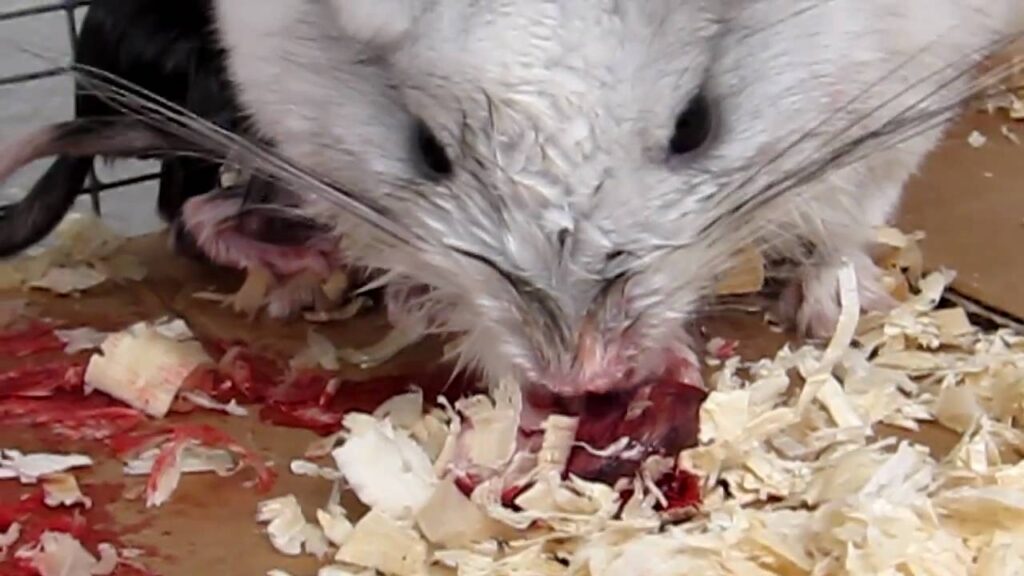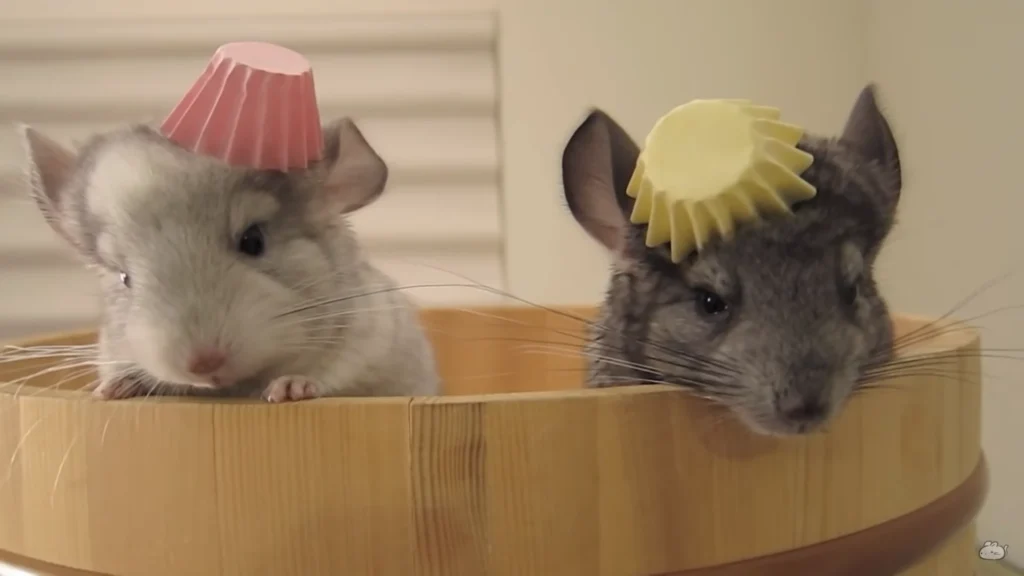Chinchillas are small, rodent-like creatures native to the Andes Mountains in South America. They have long, silky fur and an energetic personality that has made them popular as pets.
While they can be friendly and playful when handled correctly, chinchillas can also exhibit certain behaviors that many owners find unexpected or troubling. One of these is the question of whether chinchillas will eat their own babies – a phenomenon known as cannibalism.
In this article we will explore the reasons why this behavior may occur, as well as what steps owners can take to prevent it from happening.
Will Chinchillas Eat Their Babies?
It is not common for chinchillas to eat their babies, but it is possible under certain circumstances. For example, if a chinchilla is stressed or feels threatened, it may eat its own offspring as a way to reduce the number of mouths it needs to feed.
Additionally, if a chinchilla is malnourished or lacks essential nutrients, it may resort to eating its own babies as a source of sustenance.
However, it is important to note that these behaviors are relatively rare and are typically only observed in captive chinchillas that are not provided with proper care and nutrition.
Additionally, it is worth noting that if a chinchilla mother is disturbed or stressed during delivery, she may accidentally crush the babies, leading to death. It is important to provide a quiet, safe, and comfortable environment for chinchillas during the birthing process, to minimize the risk of accidental injury or death of the babies.
Overall, chinchillas are not known to be cannibalistic, and cases of mothers eating their own babies are uncommon. Proper care, nutrition and a stress-free environment can help prevent this behavior.
Reasons why Chinchillas May Eat Their Babies
Nutritional deficiencies can be a major contributing factor as to why chinchillas may resort to eating their own young. Chinchillas need an adequate and balanced diet in order to sustain healthy growth and development including hay, fresh vegetables, pellets, and nuts.
If these requirements are not met then the mother may feel desperate enough to try anything for survival – even if it means eating her own offspring.
Mother’s stress levels can also have an impact on whether or not she will resort to cannibalism when it comes to her babies. When chinchillas are stressed out due to overcrowded living conditions or lack of resources they become more likely to engage in this type of behavior as a last-ditch effort for survival.

It is important that owners make sure their pet’s environment is suitable so that maternal instincts don’t kick in leading them towards consuming their young ones instead.
Environmental factors surrounding the chinchilla can also play a role in whether or not she will consume her littermates under certain circumstances such as competition for food, water shortages, extreme temperatures etc..
These types of scenarios may cause the female chinchilla feel vulnerable and desperate so much so that she feels compelled by instinctive behaviors which leads her into practicing cannibalism with her own offspring.
How to Prevent a Mother Chinchilla from Eating Its Babies
One of the best ways to prevent chinchillas from eating their babies is to provide proper care and nutrition during pregnancy. Chinchilla mothers need adequate nutrition in order to stay healthy and provide enough nutrients for her growing pup.
This includes feeding her a balanced diet that consists of hay, fresh vegetables, fruits, nuts, seeds and commercially produced pellets or food blocks specifically designed for chinchillas.
It is also important to ensure she has access to plenty of clean water at all times as dehydration can contribute further nutritional deficiencies which may lead to cannibalism.
Another way to help prevent cannibalism in chinchillas is by monitoring them closely throughout the duration of their pregnancy. This involves providing regular health checks such as weighing the mother on a weekly basis; if significant weight loss occurs then it could indicate that she isn’t getting enough nutrition which should be addressed immediately.
Additionally, checking the burrow for signs of distress or aggression can alert you early on if there are any potential problems before they escalate into something more serious – such as cannibalism – allowing you take action quickly and avert disaster before it happens.
How Many Kids To Chinchillas Have?

On average, typical domestic chinchillas will give birth to 3 – 6 babies per litter. This range can vary depending on many factors such as health and genetics but this figure provides owners with an idea of what to expect from their new arrivals.
In some cases however it is possible for a female chinchilla to experience complications during labor or even suffer miscarriages so having access to experienced veterinary care is essential in these scenarios.
It’s also important that owners keep in mind that newborn baby chins are very small and fragile so extra caution should be taken when handling them until they’re old enough (2 months) to become more independent.
With proper nutrition and support from its mommy or human caregiver baby chinchilla can quickly grow into healthy adults who make great pets.
How To Take Care of a Pregnant Chinchilla?
One of the most important things to consider when caring for a pregnant chinchilla is her diet. Chinchillas need a high-quality, balanced diet that includes hay and fresh vegetables like carrots, apples, and peppers. You should also provide plenty of clean water for your chinchilla every day.
Additionally, make sure you are providing her with enough calcium in her diet by adding supplements or offering dietary items like eggshells or cuttlebone. Calcium is important during pregnancy as it helps build strong bones in the developing babies.
You will want to take extra steps to keep your pregnant chinchilla’s environment safe and comfortable throughout her pregnancy. Make sure she has access to ample bedding material such as wood shavings or shredded paper so that she can create a cozy nest for herself.
Provide plenty of places where she can hide away if she wants some privacy or feels stressed out due to increased activity around her cage (for example, from other animals). Additionally, limit loud noises near your pregnant chinchilla’s habitat since this could cause undue stress on both mother and unborn babies.
Conclusion
In conclusion, chinchillas are fascinating animals that can make fun and interesting pets. While they rarely resort to cannibalism in the wild, it is still important to be aware of the factors which may lead them to do so and take preventive measures whenever possible.
Understanding their biology and providing them with adequate nutrition during pregnancy is paramount in order to ensure a healthy mother-pup relationship as well as a safe environment for all members of the group.
Additionally, regular health checks throughout the duration of its pregnancy should be carried out in order to detect any signs of distress or aggression before they potentially escalate into something more serious. By following these simple guidelines, it is possible to keep your chinchilla family happy and healthy while avoiding any unnecessary tragedies!
